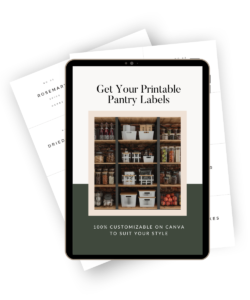Fermentation is a natural process where microorganisms like bacteria, yeast, and molds break down sugars and starches in food. This process creates beneficial compounds such as probiotics, vitamins, and enzymes, while also preserving the food. Common fermented foods include yogurt, sauerkraut, kimchi, kefir, kombucha, and sourdough bread.
Boosting Health with Fermented Foods
1. Rich in Probiotics
One of the most well-known benefits of fermented foods is their high probiotic content. Probiotics are live bacteria and yeasts that are good for your digestive system. They help maintain a healthy gut flora, which is crucial for digestion, nutrient absorption, and immune function. Regular consumption of fermented foods can improve gut health, reduce digestive issues, and enhance overall well-being.
2. Enhanced Nutrient Absorption
Fermentation breaks down anti-nutrients in food, such as phytic acid, which can inhibit the absorption of minerals like iron, zinc, and calcium. This means that fermented foods can make it easier for your body to absorb and utilize essential nutrients, leading to better health outcomes.
3. Increased Vitamin Content
Fermented foods are often richer in vitamins compared to their non-fermented counterparts. For example, sauerkraut (fermented cabbage) has higher levels of vitamin C and B vitamins. Fermentation can also produce unique vitamins, such as vitamin K2, which is essential for bone health and cardiovascular function.
4. Natural Detoxification
Fermented foods contain beneficial bacteria that can help detoxify harmful substances in the body. These bacteria produce enzymes that break down toxins, making them easier to eliminate. Regular consumption of fermented foods can support your body’s natural detoxification processes and promote a cleaner, healthier system.
5. Stronger Immune System
A healthy gut is closely linked to a strong immune system. The probiotics in fermented foods help maintain the balance of good bacteria in your gut, which in turn supports your immune function. This can reduce the risk of infections, allergies, and autoimmune disorders.
Boosting Self-Reliance with Fermented Foods
1. Preserving Harvests
Fermentation is an excellent way to preserve the bounty of your garden without the need for refrigeration or canning. This is especially useful for those interested in self-reliance and reducing food waste. Fermented foods can be stored for months, providing you with nutritious options long after the growing season has ended.
2. Reducing Dependence on Store-Bought Goods
By fermenting your own foods, you can reduce your reliance on commercial products, many of which contain preservatives, artificial flavors, and added sugars. Homemade fermented foods are often more nutritious and free from harmful additives, giving you greater control over what you consume.
3. Cost-Effective and Sustainable
Fermenting foods at home is cost-effective and environmentally friendly. The process requires minimal equipment and ingredients, making it an affordable way to enhance your diet. Additionally, fermenting your own foods reduces packaging waste and the carbon footprint associated with transporting commercial goods.
4. Developing Valuable Skills
Learning to ferment foods is a valuable skill that contributes to your self-sufficiency. It empowers you to take control of your food supply and nutrition, and it can be a rewarding and enjoyable hobby. Sharing your fermented creations with family and friends can also foster a sense of community and connection.
5. Culinary Creativity
Fermentation opens up a world of culinary possibilities. Experimenting with different ingredients and fermentation techniques can lead to unique and delicious creations. This creativity in the kitchen can enhance your cooking skills and make mealtime more exciting and enjoyable.
Getting Started with Fermentation
Starting your fermentation journey is easier than you might think. Here are a few tips to help you get started:
- Choose a Simple Recipe: Begin with something straightforward like sauerkraut or yogurt. These are beginner-friendly and require minimal ingredients and equipment.
- Use Quality Ingredients: Opt for fresh, organic produce and high-quality dairy to ensure the best results. Avoid using tap water, as chlorine can inhibit the fermentation process.
- Maintain Cleanliness: Cleanliness is crucial to prevent contamination. Sterilize your jars and utensils before use.
- Monitor the Process: Fermentation times can vary based on temperature and other factors. Taste your creation periodically to determine when it’s ready.
- Enjoy the Journey: Fermentation is both an art and a science. Embrace the learning process and have fun experimenting with different recipes and techniques.
Incorporating fermented foods into your diet can significantly boost your health and self-reliance. By mastering this ancient practice, you can enjoy delicious, nutritious foods while reducing your dependence on commercial products. So why not start fermenting today and experience the myriad benefits for yourself? You can get yourself a fermentation starter kit to get started.
Did you know that sourdough starter is fermentation too? Learn how to make your own sourdough starter here.
This blog contains affiliate links, which means I may earn a small commission if you make a purchase through these links. This comes at no additional cost to you and helps support the ongoing content creation on this site. I only recommend products and services that I personally use and believe in. Thank you for your support











 Don’t forget to grab your Free Pantry Labels! Fully editable on Canva to suit your personal design style!
Don’t forget to grab your Free Pantry Labels! Fully editable on Canva to suit your personal design style!
0 Comments